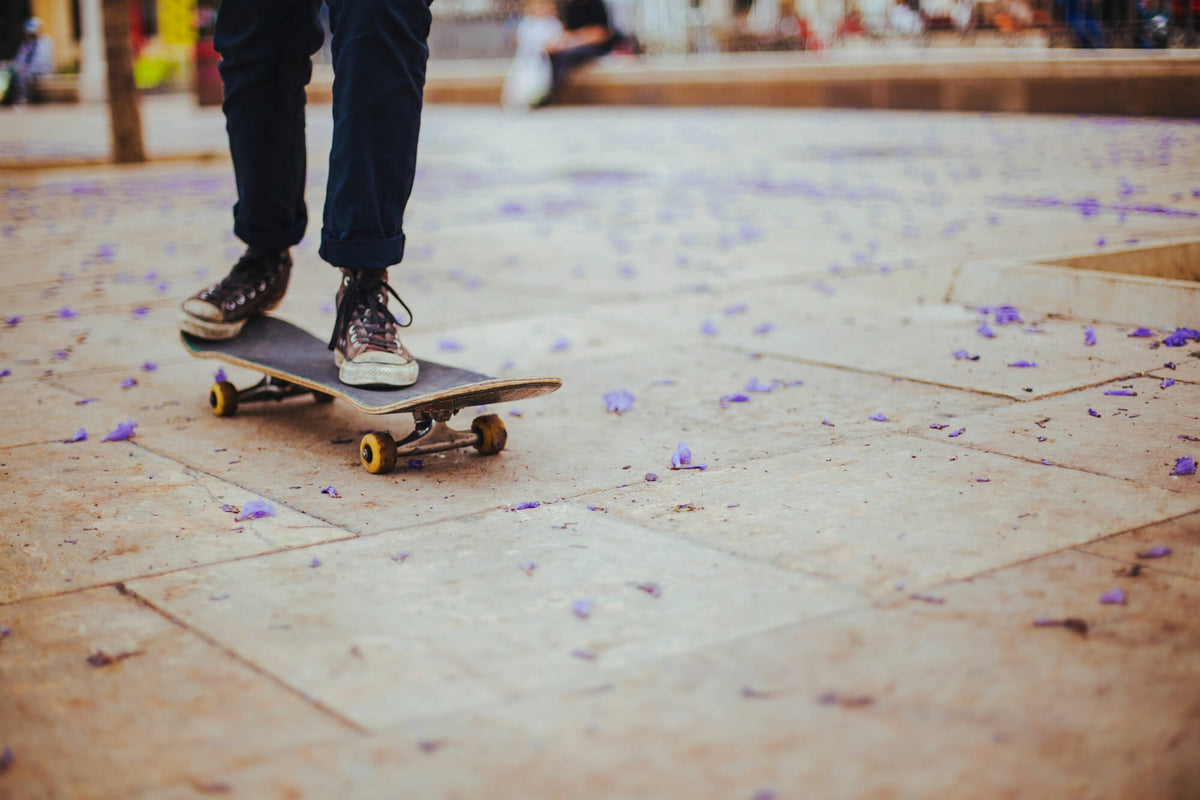5 Common Mistakes New Skaters Make and How to Avoid Them

Starting your skateboarding journey is exciting, but like any new skill, it comes with a learning curve. Beginners often make some common mistakes that can slow progress, lead to injury, or take the fun out of skating. Fortunately, these mistakes are easy to avoid once you know what to look for. Here are five mistakes new skaters make and how to prevent them, so you can skate with confidence from the start.
1. Choosing the Wrong Skateboard
A common mistake for beginners is picking a board that doesn't suit their skill level or skating style. Many new skaters grab boards that are too large, too small, or poorly made, making it harder to balance and control the board.
How to Avoid It:
Choose a skateboard that matches your body size and riding preferences. If you're just starting, opt for a complete skateboard from a trusted brand, which ensures you're getting a board with the right setup. Don’t hesitate to ask for help from experienced skaters or your local skate shop!
2. Not Wearing Protective Gear
It’s easy to get excited about hitting the park and forget about safety. Many beginners skip protective gear, thinking they won’t fall. But even seasoned skaters hit the ground, and when you’re new, falls are almost inevitable.
How to Avoid It:
Always wear a helmet, knee pads, elbow pads, and wrist guards, especially when learning. Protective gear helps build confidence because you’ll feel safer taking risks and pushing your limits without the fear of injury.
3. Improper Stance and Balance
New skaters often struggle with finding their stance and keeping balanced, which can lead to falls and frustration. Having the wrong foot forward or standing too stiffly makes it harder to control the board and navigate your environment.
How to Avoid It:
Start by finding your natural stance—regular (left foot forward) or goofy (right foot forward). Practice standing on your board with your knees slightly bent and your weight evenly distributed over your feet. Spend time just rolling around and balancing before attempting tricks.
4. Skipping the Basics
Many beginners rush straight into trying tricks like kickflips or ollies without mastering the fundamentals, which leads to frustration and poor form. Not mastering basics like pushing, stopping, and turning can hold you back from progressing smoothly.
How to Avoid It:
Focus on the basics first. Spend time learning how to push and stop comfortably, practice turning and carving, and get used to your board. Once you're confident with the fundamentals, transitioning to tricks will be much smoother and less frustrating.
5. Giving Up Too Soon
Skateboarding can be challenging, and it’s easy to get discouraged when things don’t click right away. Many new skaters quit too early because they expect to progress faster or feel frustrated by frequent falls.
How to Avoid It:
Be patient with yourself and remember that skateboarding takes time and practice. Celebrate small wins, like rolling smoothly or learning how to push, and keep pushing yourself to get back on the board after each fall. Every skater, no matter how experienced, started with falls and setbacks.
Starting out with these tips in mind will make your skateboarding journey much smoother and more enjoyable. Remember, every skater was a beginner once, and with the right approach, you'll be skating confidently in no time.
Looking for quality skate gear to get started? Explore our collection of boards and protective gear HERE.
(Image from www.freepik.com)